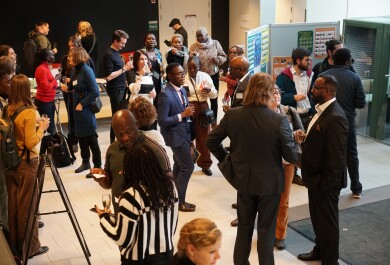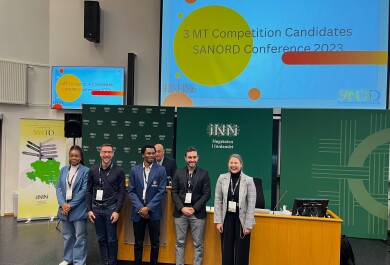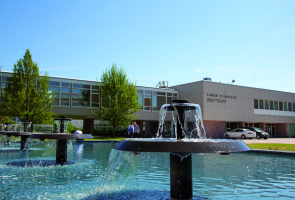Geospatial Education Development Project Coordinated by the University of Turku Receives Nearly €2 Million in Funding
The GeoICT4e project coordinated by the University of Turku has received a HEI ICI funding of nearly €2 million from the Ministry for Foreign Affairs of Finland for the development of socially innovative geospatial education at Tanzanian higher education institutions.
The Ministry for Foreign Affairs has granted altogether €11.2 million to four-year partnerships of higher education institutions. Higher Education Institutions Institutional Cooperation Instrument (HEI ICI) supports the co-operation projects between higher education institutions in Finland and the developing world.
The largest funding was granted to the GeoICT4e project coordinated by the Department of Geography and Geology at the University of Turku. The project is focused on improving geospatial and ICT education in Tanzanian higher education institutions. The co-operation project between three Finnish and five Tanzanian higher education institutions aims to change the functionality of the education to produce problem-solving geospatial experts for the digital labour markets of the future.
Learning Is Based on Real Problems
A central aim of the educational change is to develop the students' versatile skills through problem-oriented learning. In the GeoICT4e project, the local universities organise 2-3 month challenge campaigns together with innovation actors. The campaigns develop students’ skills in using geospatial data and technologies, defining and analysing geographical phenomena, sustainable development, and finding resource effective solutions. All this happens in an entrepreneurial environment.
During the challenge campaign, the students meet different societal actors, citizens, innovation experts and teachers from different fields. Socially innovative and locally practical solutions are developed in collaboration for the complex problems of the surrounding society, such as the recurring floods in large cities or the irresponsible use of natural resources.
– Africa is digitalising rapidly. Enormous strides in well-being can be made with innovative solutions that use data and technology, provided that they are connected to the local context. This education challenge is not only the reality in Africa but also here. Together with Africans, we are creating new generation experts with the type of social literacy that is currently in demand everywhere, explains Associate Professor Niina Käyhkö from the Department of Geogrpahy and Geology.
Continuing Long-term Co-operation
The GeoICT4e is the third project coordinated by the Department of Geography and Geology at the University of Turku that has received the HEI ICI funding. It is a continuation for the previous GeoICT project (2017-2020) and is based on the University’s long-term research, teaching and development co-operation with Tanzanian higher education institutions and actors.
Now, the co-operation also includes Turku University of Applied Sciences, Novia University of Applied Sciences, and Tanzanian Moshi Co-operative University. Käyhkö notes that in a big project, partners bring extra value and improve the quality and scalability of solutions. Finnish and Tanzanian teaching and innovation businesses and organisations are also involved in the project.
– Turku University of Applied Sciences and campus Raseborg of the Novia University of Applied Sciences provide professional and entrepreneurial skills, education skills on sustainable development as well as expertise in forest and natural resources and bioeconomy. The University of Turku provides expertise in geography and future technologies, particularly in geospatial data, entrepreneurship and e-learning.
The Rector of the University of Turku, Jukka Kola, reminds that goal-oriented internationalisation is part of the University’s strategic emphases, and the HEI ICI funding is particularly important for the strengthening of the co-operation with different actors in Africa.
The Department of Geography and Geology at the University of Turku also coordinates the Resilience Academy project funded by the World Bank. The project strengthens Tanzanian higher education institutions’ geospatial data skills in order to control sustainable urban development and climate change risks. The Resilience Academy is expanding to other African countries, and with the help of the GeoICT4e project, the aim is to find a scalable model for reforming teaching in which e-learning and problem-based pedagogics play a central role.
– We are building a teaching partnership between the University of Turku and Tanzanian higher education institutions and developing an operational model which can be exported to other African countries, summarises Kola.



